|
10/30/2014 1 Comment MEDIATION FOR SUCCESS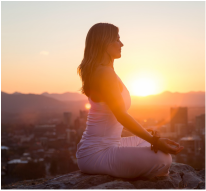 We all want to thrive. To accomplish our best at any given moment and achieve exactly what we hope for. This is true in business and at home, on the playing field as well as in our personal life. Meditation is a time-tested tool that helps us achieve success in all areas of life. From Twitter’s Evan Williams and Aetna’s Mark Bertolini to basketball’s Lebron James and even Oprah Winfrey, meditation changes lives, helping people dealing with physical pain, lower stress, address chronic diseases, and even tap into intuition and change long-held habits. While the benefits, from lowering blood pressure, decreasing heart diseases and addressing sleep problems, anxiety and depression are clear, many people still do not meditation. 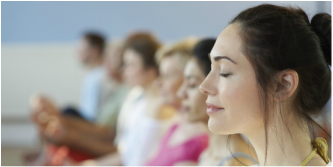 “I’m too busy”, “I can’t” or “My mind can’t shut off,” are common complaints. Meditation can take less time than brewing a cup of coffee and can be done by anyone with proper instruction. It also is not a process of "not thinking". The mind is meant to think, and when we try to “not think” we usually end up having a whirlwind of ideas and thoughts flood into our awareness, which makes people believe they cannot meditate. Instead, meditation is a practice of focus, where we drown out all other things to the exclusion of one. That has far-reaching implications for all kinds of success – from understanding our golf swing to creating the life of our dreams. 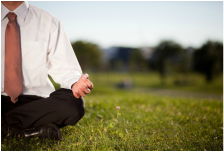 Jack Kornfield, an American author and teacher of vipassana meditation, says in his book A Path with Heart that meditation is a bit like training a puppy to sit. We lead it back to the same spot over and over again and tell it to sit. If we beat it, it cowers. When we train it with kindness and consistency, it thrives. Meditation trains the mind in a similar way. The “sitting spot” is important. Traditions around the world give similar focal points -- paying attention to the breath, listening to the repetition of a sound or feeling subtle sensations. These points of focus have wisdom. They help change our brain patterns, facilitating the alpha and theta brain waves that create relaxed, clear insight. Resting here, we generate spontaneous new ideas, creative solutions and greater understanding of problems that may have otherwise perplexed us. Like any skill, meditation takes regular, daily practice, and the effects are often cumulative. It is best to get instruction initially to avoid developing bad habits. With just 5-10 minutes a day, one can adopt this simple, effective tool that assists in thriving in all areas of life: body, mind, health and game.
1 Comment
10/30/2014 0 Comments The Whole Medicine Bag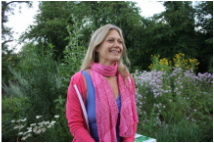 How often do you know what is good for you, and not do it? Or the opposite? Know what is not good for you and do it anyway? If you're like me, probably more often than you would like to admit. Yogis call this "a-dharmic", going against your nature. And they say is the root of our problems. Through wisdom and practice, we learn to make more "dharmic" choices -- those that serve our life, from friends to food to free-time activities. Yet even as we make dharmic choices, sometimes we get sick or have set backs. It's easy to blame ourselves, thinking we did something wrong. But perhaps the "problem" hasn't appeared because we failed. Perhaps it is simply another alley in our leaps of growth and expansion? Helping us become more aware and conscious? 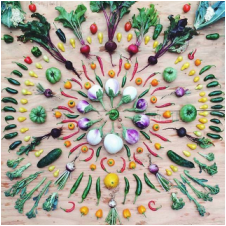 Recently I got a major organ infection. I was sad and angry, as my herbs, diet and yoga practice were not putting me back into health. I was required to reach for a pharmaceutical drugs, and felt that I had somehow failed. My "magic" had failed. Yet, working with western medicine gave me an important experience. Drugs are powerful. And fast. Taking an antibiotic, I felt better within hours after weeks of pain. Western medicine became my ally in health, for the first time in a decade. I also became acutely aware their side effects. In pulling out the "big guns" -- i.e. those that are employed when all else fails because, as they heal one system, they often harm another -- I was also overwhelmed by nausea, dizziness, out of body experience and more. These are the "big guns" for a reason, and unfortunately due to misuse, now kill more people than illegal drugs. 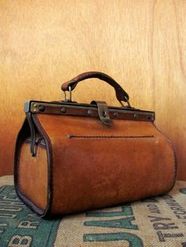 While I gained a valuable experience and am grateful for western medicine's role in my life, I'm even more grateful that it is not the only tool in my medicine bag. My tools include a wise progression of health - diet, exercise, herbs, acupuncture, massage, laughter, emotional fluency, meditation, yogic wisdom, wise woman wisdom and so much more. With such an arsenal, I can reach for the tool that is just a little bit bigger than the issue at hand. For, like a parent correcting a small child, I want my tool to be just big enough get the point across. Not so big it blows up the whole landscape. While it will take weeks, months and maybe longer to repair the landscape of my body from antibiotics, they were the right tool at the time. Next time, something goes "wrong", I will return tools with fewer side effects, and trust in their power to heal. I know that not ever minor injury needs a big gun, just like every problem doesn't need a hammer. Yet with a varied medicine bag, and the wisdom of how to use the tools within, I now have an expanded ability to act dharmically, whatever may arise. May we all have circle of healing allies that support our everyday happiness, wellness, passion and purpose. Namaste, Munay and Blessings, Jackie Dobrinska Simple Solutions for a Vibrant Life |
Jacquelyn
|
 RSS Feed
RSS Feed